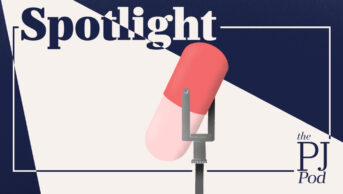
Shutterstock.com
A working group led by the Royal Pharmaceutical Society (RPS) has been set up to tackle the attainment and awarding gap experienced by black pharmacy students and foundation trainees.
In a statement published on 9 October 2023, the RPS said that the group will meet once a quarter to focus on “fostering a more inclusive and supportive learning environment”.
Other bodies included in the working group are the British Pharmaceutical Students’ Association (BPSA), General Pharmaceutical Council (GPhC), NHS England, Pharmacy Schools Council (PhSC) and representatives from individual schools of pharmacy. Student representative organisations will be invited to join after the group’s first meeting.
The statement said: “In pharmacy education, research has shown that black students and foundation trainees face unique challenges that can lead to lower attainment compared to their white counterparts in the registration assessment and an awarding gap at an undergraduate level. Addressing the gap is crucial to achieving a fair and equitable educational and training experience for them.”
Analysis of Higher Education Statistics Agency data from 2019/2020 and 2020/2021, carried out by The Pharmaceutical Journal and published in March 2023, revealed that 94% of white pharmacy (MPharm) degree students graduated with a first or 2:1, compared with 86% of ethnic minority graduates — a statistically significant difference of 8 percentage points.
The largest gap was between white and black graduates, at 12 percentage points.
Amandeep Doll, head of professional belonging at the RPS and chair of the working group, said that tackling the differential attainment and awarding gap for black students and trainees “has been ignored for too long”.
“Every aspiring pharmacist should have an equal opportunity to succeed and reach their full potential. Achieving equity in pharmacy education not only enhances the opportunities for black students but also contributes to a more diverse and representative workforce, which is crucial for delivering high-quality healthcare to all communities,” Doll said.
She said that “vital” changes were needed in curriculum design, teaching practices, assessment methods and institutional support structures, adding that the RPS would like to see mentorship programs and support systems for black pharmacy students and trainees.
Katie Maddock, chair of Pharmacy Schools Council, said: “I’m delighted to be working with the RPS and other key stakeholders on strategies to improve the educational experience and attainment of black students in pharmacy throughout their training. We all have so much to learn from each other to enable and empower students to aim high and achieve their ambitions.”
The RPS will produce a report for publication in November 2023, setting out the group’s recommendations and actions to improve the differential attainment and awarding gap “in a meaningful and sustainable way”.
Recommendations will be based on the themes of inspiration, aspiration and role models; cultural competence training for tutors, debiasing processes and supporting the transition into the workplace; and data collection.
Responses to a freedom of information request, sent by The Pharmaceutical Journal to 31 schools of pharmacy in the UK in September 2021, found that 24 of the 28 schools that responded were planning to make their MPharm degree curriculums more inclusive.


